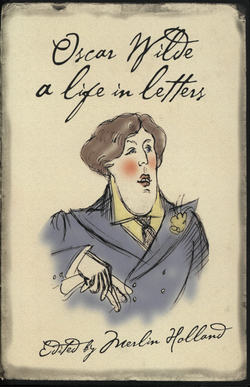Читать книгу Oscar Wilde: A Life in Letters - Оскар Уайльд, Merlin Holland, F. H. Cornish - Страница 66
To Emma Speed
Оглавление21 March 1882 [Omaha, Nebraska]
What you have given me is more golden than gold, more precious than any treasure this great country could yield me, though the land be a network of railways, and each city a harbour for the galleys of the world.
It is a sonnet I have loved always, and indeed who but the supreme and perfect artist could have got from a mere colour a motive so full of marvel: and now I am half enamoured of the paper that touched his hand, and the ink that did his bidding, grown fond of the sweet comeliness of his charactery, for since my boyhood I have loved none better than your marvellous kinsman, that godlike boy, the real Adonis of our age, who knew the silver-footed messages of the moon, and the secret of the morning, who heard in Hyperion’s vale the large utterance of the early gods, and from the beechen plot the light-winged Dryad, who saw Madeline at the painted window, and Lamia in the house at Corinth, and Endymion ankle-deep in lilies of the vale, who drubbed the butcher’s boy for being a bully, and drank confusion to Newton for having analysed the rainbow. In my heaven he walks eternally with Shakespeare and the Greeks, and it may be that some day he will lift
his hymenaeal curls from out his amber gleaming wine, With ambrosial lips will kiss my forehead, clasp the hand of noble love in mine.
Again I thank you for this dear memory of the man I love, and thank you also for the sweet and gracious words in which you give it to me: it were strange in truth if one in whose veins flows the same blood as quickened into song that young priest of beauty, were not with me in this great renaissance of art which Keats indeed would have so much loved, and of which he, above all others, is the seed.
Let me send you my sonnet on Keats’s grave, which you quote with such courteous compliment in your note, and if you would let it lie near his own papers it may keep some green of youth caught from those withered leaves in whose faded lines eternal summer dwells.
I hope that some day I may visit you again at St Louis, and see the little Milton and the other treasures once more: strange, you call your house ‘dingy and old’, ah, dear Madam, fancy has long ago made it a palace for me, and I see it transfigured through the golden mists of joy. With deep respect, believe me, most truly yours
OSCAR WILDE
